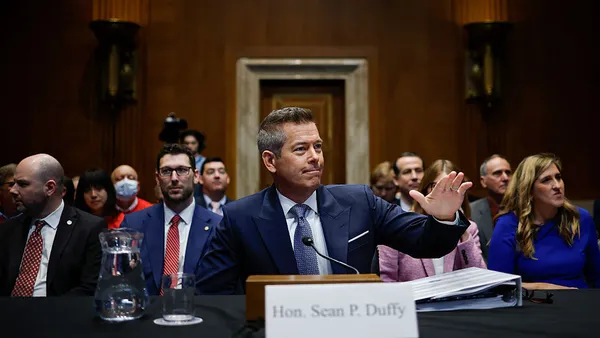OSHA has been issuing guidance to employers on how to keep their workers safe since the beginning of the COVID-19 pandemic.
Although the federal safety agency only recently submitted its draft of an emergency temporary standard to President Joe Biden’s administration, it has continued to update its answers to the most frequently asked employer questions about their COVID-19-related responsibilities.
OSHA has provided comprehensive, up-to-date information through its online FAQ section, but the agency’s responses to vaccine-related questions have employers wondering if the agency has gotten it wrong.
Employers that require their employees to be vaccinated as a condition of employment, the agency said, must record any adverse reactions to the vaccine on the appropriate OSHA log forms if the reaction is:
- Work-related (if getting the vaccine is a condition of employment, then it is work-related).
- A new case.
- Meets one or more of the general recording criteria specified in 29 CFR 1904.7.
The criteria for recording an injury or illness are:
- Death.
- Days away from work.
- Restricted work or transfer to another job.
- Medical treatment beyond first aid.
- Loss of consciousness.
- A significant injury or illness diagnosed by a physician or other licensed healthcare professional, even if it does not result in death, days away from work, restricted work or job transfer, medical treatment beyond first aid or loss of consciousness.
The Centers for Disease Control and Prevention has been keeping tabs on adverse reactions to the various vaccines available in the U.S. and said that some recipients of COVID-19 vaccines have no reaction and many have reported mild reactions. Serious reactions like anaphylaxis, thrombosis with thrombocytopenia syndrome (TTS) and death are extremely rare.
Even so, said attorney Phillip Russell with Ogletree, Deakins, Nash, Smoak & Stewart, an increase in the number of recorded illnesses and injuries could potentially negatively impact employers through higher workers' compensation costs, fewer bidding opportunities and the number of future OSHA inspections when the employer is asked to produce their illness and injury logs.
Questions for contractors
The guidance, said Bob Clark, founder and executive chairman of Chicago-based general contractor Clayco, is a “tremendous mistake” and goes against the Biden administration's push to get as many people as possible vaccinated against COVID-19.
"OSHA has been terrific through the whole COVID experience," he said. "so I just don't understand this ruling. It looks like more of a bureaucratic decision than an upper-level policy decision."
Certainly, Clark said, this guidance could keep companies from requiring their employees to get the vaccine. In fact, OSHA's position prompted Clayco to change its own vaccine mandate to one that “strongly encourages” the jab a day after the agency issued the guidance.
Last month, Clayco announced that all 400 workers at its Chicago headquarters, barring medical or religious exemptions, would have to be vaccinated before gaining entry to the building beginning May 10, when all Clayco office employees there returned to the office full time. The requirement was also in place for salaried workers on the contractor’s jobsites around the country.
Clark said the company has reached out to lawmakers to express its concern around the guidance. “I just can't imagine that this won’t get overruled,” he said.
Other issues
It’s not only the direction regarding mandated vaccines that have the construction industry concerned. OSHA also indicated that even employers who recommend or provide opportunities for vaccination could be required to record adverse reactions if the option to get the vaccine is not “truly voluntary.”
“For example," OSHA's guidance reads, “an employee’s choice to accept or reject the vaccine cannot suffer any repercussions from their choice. If employees are not free to choose whether or not to receive the vaccine without fearing adverse action, then the vaccine is not merely ‘recommended.’”
A coalition of construction employer groups, including the Associated General Contractors of America, has penned a letter to the Department of Labor, stating that this take on recording responsibilities could be confusing to employers and create uncertainty as to their obligations.
OSHA should “simply state that adverse reactions to a COVID-19 vaccine that was not mandated by the employer should not be recorded on the employer’s OSHA 300 Log because it is not considered a work-related injury or illness under the rule,” the AGC wrote. The group is not contesting the recording requirements for employers that mandate the vaccine.
Kevin Cannon, director of safety and health services at the AGC, echoed Clark's concern that the agency’s guidance has the potential to hinder efforts to get as many workers vaccinated as possible.
“Unless they change their position, it could be a long haul,” he said.













